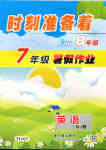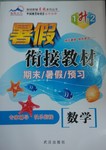题目内容
A land free from destruction, plus wealth, natural resources, and labor supply—all these were important 1 in helping England to become the center for the Industrial Revolution. 2 they were not enough. Something 3 was needed to start the industrial process. That "something special" was men—4 individuals who could invent machines, find new 5 of power, and establish business organizations to reshape society.
The men who 6 the machines of the Industrial Revolution 7 from many backgrounds and many occupations. Many of them were 8 inventors than scientists. A man who is a 9 scientist is primarily interested in doing his research 10 .He is not necessarily working 11 that his findings can be used.
An inventor or one interested in applied science is 12 trying to make something that has a concrete use. He may try to solve a problem by 13 the theories 14 science or by experimenting through trial and error. Regardless of his method, he is working to obtain a 15 result: the construction of a harvesting machine, the burning of a light bulb, or one of 16 other objectives.
Most of the people who 17 the machines of the Industrial Revolution were inventors, not trained scientists. A few were both scientists and inventors. Even those who had 18 or no training in science might not have made their inventions 19 a groundwork had not been laid by scientists years 20 .
1.A.cases B .reasons C .factors D .situations
2.A.But B .And C .Besides D .Even
3.A.else B .near C .extra D .similar
4.A.generating B .effective C .motivating D .creative
5.A.origins B .sources C .bases D .discoveries
6.A.employed B .created C .operated D .controlled
7.A.came B .arrived C .stemmed D .appeared
8.A.less B .better C. more D .worse
9.A.genuine B .practical C .pure D .clever
10.A.happily B .occasionally C. reluctantly D .accurately
11.A.now B .and C .all D .so
12.A.seldom B .sometimes C .all D .never
13.A.planning B .using C .idea D .means
14.A.of B .with C .to D .as
15.A.single B .sole C. specialized D .specific
16.A.few B .those C .many D .all
17.A.proposed B .developed C .supplied D .offered
18.A.little B .much C .some D .any
19.A.as B .if C .because D .while
20.A.ago B .past C .ahead D .before
1--20 CAADB BACCD DCBAD CBABD
解析:
1.C 从这四个词的意思上来区分,case是“事例,案例”的意思,reason表原因,factor意为“因素”,situation的意思是“形势,状况”,文中句子的意思是上述条件是使英国成为工业革命中心的重要因素。故选C.factor。
2. A 根据上下句的意思,应选一个表转折的连词,只有A.but符合题意。
3. A else意为“其他,别的”,如:What else can I say?别的我还能说些什么呢?extra意为“额外的,外加的”,如:an extra loaf of bread多加的一条面包,而这句话要表达的是“也需要其他条件”,而不是“额外条件”,排除C.extra。near和similar意思相差较远,故选A。
4. D 根据下句的解释,应选“有创造性的”,creative符合题意。generating (产生的、生产的)、motivating (有动机的)和effective(有效的)意思上不贴切。
5. B sources意为“来源,根源”,如,sources of power意为“能源”。符合题意。origin的意思是“起因,由来”。如:the origin of a river河流的源头;base是“基础”的意思;discovery是“发现”的意思。
6. B 根据句子的意思,应选create“创造,发明”这个词。
7. A come from的意思是“出自,来自”,与后面background搭配,意为“出于……背景”。stem from意为“起源于”,如:Her interest in books stems from her childhood.她对书本的兴趣是从童年开始的。B、C项的意思不对。
8. C more…than…是固定搭配,意为“与其说……不如……”。本句的意思是,“与其说是科学家,不如说是发明家”。
9. C pure的意思是“纯粹的,单纯的”,genuine的意思是“真正的”,practical的意思是“实际的”,clever的意思是“聪明的”,句子的意思是“一个单纯的科学家主要致力于精确的科学研究。”
10. D accurately的意思是“精确的”,符合题意。Happily(愉快的);occasionally(时而的,偶然的)和reluctantly(勉强的)均不合题意。
11. D so that是固定搭配,表目的。
12. C 这句话的意思是“一个发明家或热衷于应用科学的人通常试图创造有使用价值的东西。”
13. B 这句话的意思是“通过运用科学理论”,use意为“使用,运用”,故选B。
14. A theories of science的意思是“科学的理论”。
15. D 根据句子的意思,“他为了明确的结果而工作”,specific的意思是“明确的”,specialized的意思是“专门的”; sole的意思是“独有的,单一的”;single的意思是“单独的,一个人”。
16. C 根据题意,one of many other objectives“许多其他东西中的一种”。all,全部; few,几乎没有; those,那些;均不合题意。
17. B develop (使)发展。如:to develop a business,发展业务。另一个意思是“研制、开发”,用在这里恰当。如:Many new products have been developed to meet the needs of the people.开发了许多新产品以满足人们的需要。Propose建议。如:I propose resting for half an hour.我提议休息半个小时。Supply提供、供应。如:The government supplies free books to schools.政府为学校免费提供图书。Offer提供,出价。如:Will you offer the guests some coffee.你能给客人准备些咖啡吗?
18. A 本题要求选用的适与no意义相近的不定代词,在四个选项中,只有A) little的意思是“几乎没有”,后接不可数名词,符合题意。
19. B 本题要求填入的是一个连词,用来连接一个表示与过去事实相反的虚拟条件句。本句的意思是说:“如果没有科学家早年打下的基础,那些在科学上接受过很少或没有接受过教育的人就不可能有所发明创造”。if的意思是“如果,假使”,通常用在虚拟条件句中。
20. D 本题要求填入的副词用来修饰一个过去完成时的谓语动词,即表示过去某个时间以前发生的动作,因而只能用D)before。如:He would not have achieved so much in the research if he had not studied chemistry years before.如果他早年没学过化学的话,他在这项研究中就不可能取得这么大的成绩。Ago只与一般过去时连用,表示从现在角度看过去的某一时间。如:He studied chemistry many years ago.他好多年前学过化学。

 时刻准备着暑假作业原子能出版社系列答案
时刻准备着暑假作业原子能出版社系列答案 暑假衔接教材期末暑假预习武汉出版社系列答案
暑假衔接教材期末暑假预习武汉出版社系列答案
| |||||||||||||||||||||||||||||||||||||||||||||||||||||||||||
 raph 3 refer to?
raph 3 refer to?